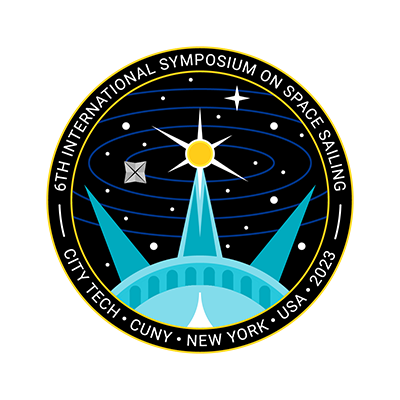The 6th International Symposium on Space Sailing (ISSS 2023) will take place in June 5-9, 2023. It will be held in New York City, USA and hosted by the New York City College of Technology, City University of New York.

Since its inauguration in Herrsching, Germany, in 2007, the ISSS has been held in New York, USA in 2010, Glasgow, UK, in 2013, Kyoto, Japan, in 2017 and then in Aachen, Germany, in 2019.
The organizing committee follows the successful tradition of the previous symposia. However, nowadays, there are a variety of competing suggestions to the conventional propulsion system, which must carry fuel on the vehicle, that have been considered worth discussing:
We welcome oral and poster presentation contributions!
Following the tradition of the previous symposia, ISSS 2023 focused on recent advances in space sailing technologies and space sailing missions. Areas of particular interest included but were not limited to:
Concepts and designs
Hardware and enabling technologies
Dynamics and control
Modeling and testing
Mission applications and programs